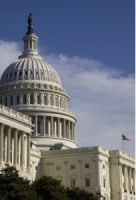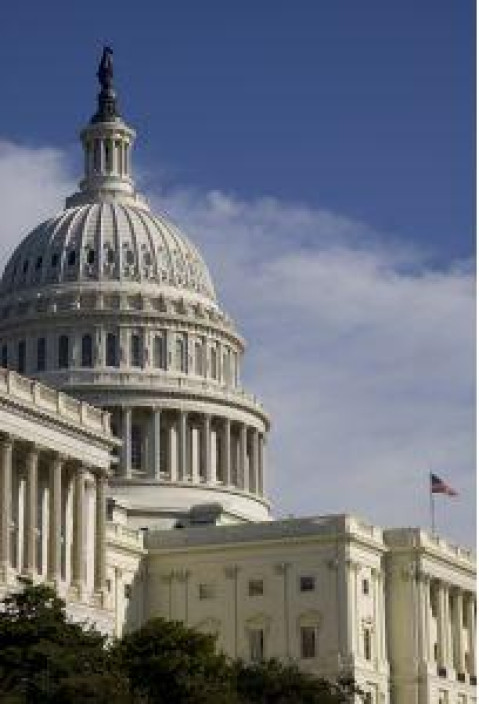Widgetized Section
Go to Admin » Appearance » Widgets » and move Gabfire Widget: Social into that MastheadOverlay zone
Professionalism, Public Service and Anti-intellectualism
By Sheila Suess Kennedy
 I listened–very briefly–to the Congressional hearings on the unfortunate, embarrassing rollout of the federal Affordable Care website. The problems with the site are amply documented and I certainly do not want to minimize what these problems tell us about the current level of bureaucratic competency–in this case, the ability of federal officials to adequately supervise and manage private-sector contractors.
I listened–very briefly–to the Congressional hearings on the unfortunate, embarrassing rollout of the federal Affordable Care website. The problems with the site are amply documented and I certainly do not want to minimize what these problems tell us about the current level of bureaucratic competency–in this case, the ability of federal officials to adequately supervise and manage private-sector contractors.
What I heard of the proceedings didn’t tell me anything new about the website’s problems. However, it did provide an epiphany of sorts. When citizens elect as their representatives, people who are undistinguished because of intellect, character or self-awareness, you get a legislature that is unequal to the challenges of the 21st century. A legislature that is simply incapable of providing the oversight and direction that is so critically important to the operations of a functional bureaucracy.
There is nothing wrong with members of Congress not knowing much about the technical aspects of the Internet. But there is something very wrong when those same congressman evidently don’t know what they don’t know, when they posture and grandstand as if they were experts.
The hearings were yet another dreary reminder of an all-too-common experience: a representative pontificating about matters he or she clearly knows little or nothing about, citing “evidence” that is erroneous, non-existent or fabricated, in support of nonsensical positions. (During the recent government shutdown, this was a more-than-daily occurrence.) This situation raises some thorny questions for those of us engaged with some aspect of public administration, whether as public servants or scholars.
The most obvious question is why? Why have we elected so many empty suits who are dismissive of science, slavishly attentive to the uninformed passions of their most extreme constituents, unschooled in basic economics and contemptuous of education and expertise?
A secondary question, yet closely related to the first, is when did intellectual and professional achievement become “elitist”? When did degrees from highly ranked schools become a source of ridicule from the right? When did rightwing pundits start dismissing those we used to call “the best and brightest” as “snobs” and “pointy-headed intellectuals”? In other words, what prompted this latest eruption of American anti-intellectualism?
 I cannot answer my own questions with any assurance. But I can’t help thinking this sad state of affairs began in the early 1980s with the constant denigration of government as a mechanism for collective action. During the presidency of Ronald Reagan, government was viewed as the problem rather than a potential solution. That attitude has hardened over the ensuing years.
I cannot answer my own questions with any assurance. But I can’t help thinking this sad state of affairs began in the early 1980s with the constant denigration of government as a mechanism for collective action. During the presidency of Ronald Reagan, government was viewed as the problem rather than a potential solution. That attitude has hardened over the ensuing years.
When government is perceived as an inept enterprise–when public service becomes an oxymoron–how can we expect it to attract “the best and brightest”—defined as our most talented and public-spirited citizens? Over the intervening years, the belief that government service is for the “also rans,” the mediocre students who can’t aspire to the really important (read lucrative) jobs in finance, mortgage banking and the like—has taken a predictable toll. In my lifetime, I have seen the quality of state and local political candidates decline and the incidence of cronyism rise. A similar phenomenon has characterized the federal system. The low esteem with which we view our governing institutions has become a self-fulfilling prophecy.
Let’s be brutally frank. Why would people who are moderately competent, let alone “the best and brightest,” want to work with the likes of Ted Cruz, Rand Paul, Michelle Bachmann, Louis Gohmert or literally dozens like them? How can we expect capable management of agencies charged with oversight of complex and interrelated public functions when the politicians to whom those managers report have absolutely no idea how government and the economy actually work?
We recently heard elected officials insist that an American default on the debt would be “no big deal.” We’ve heard characterizations of the Affordable Care Act and HIPPA that have betrayed total ignorance of the provisions of both laws. We’ve heard assertions of constitutionality and unconstitutionality untethered from even the most tortured reading of our constituent documents.
There’s nothing wrong with policy debates. Indeed, such disputes can be very productive—but only if the debate is grounded in reality and only if it addresses genuine issues and employs credible information. When ignorance is a virtue and professionalism and expertise are vices, we shouldn’t be surprised by a deficit in competent public management.
Sheila Suess Kennedy is a professor of law and public policy at the School of Public and Environmental Affairs at Indiana University – Purdue University Indianapolis.






Follow Us!